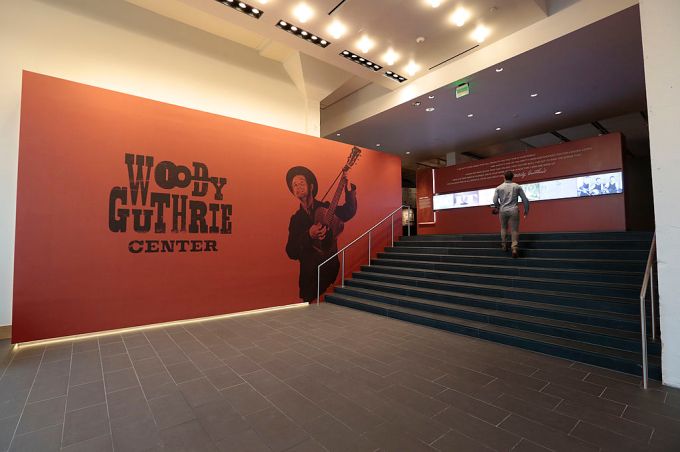When you think about startup hubs, Tulsa, Oklahoma is probably not the first city that comes to mind.
A coalition of business, education, government and philanthropists are working to foster a startup ecosystem in a city that’s better known for its aerospace and energy companies. These community leaders recognized that raising the standard of living for a wide cross-section of citizens required a new generation of companies and jobs — which takes commitment from a broad set of interested parties.
In Tulsa, that effort began with George Kaiser Family Foundation (GKFF), a philanthropic organization, and ended with the creation of Tulsa Innovation Labs (TIL), a partnership between GKFF, Israeli cybersecurity venture capitalists Team8 and several area colleges and local government.
Why Tulsa?
Tulsa is a city of more than 650,000 people, with a median household income of $53,902 and a median house price of $150,500. Glassdoor reports that the average salary for a software engineer in Tulsa is $66,629; in San Francisco, the median home price is over $1.1 million, household income comes in at $112,376 and Glassdoor’s average software engineer salary is $115,822.
Home to several universities and a slew of cultural attractions, the city has a lot to offer. To sweeten the deal, GKFF spun up “Tulsa Remote,” an initiative that offers $10,000 to remote workers who will relocate and make the city their home base. The goal: draw in new, high-tech workers who will help build a more vibrant economy.

Tulsa is the second-largest city in the state of Oklahoma and 47th-most populous city in the United States. Photo Credit: DenisTangneyJr/Getty Images
Local colleges are educating the next generation of workers; Tulsa Innovation Labs is working with the University of Tulsa in partnership with Team8 through the university’s Cyber Fellows program. There are also ongoing discussions with Oklahoma State University-Tulsa and the University of Oklahoma-Tulsa about building a similar relationship.
These constituencies are trying to grow a startup ecosystem from the ground up. It takes a sense of cooperation and hard work and it will probably take some luck, but they are starting with $50 million, announced just this week from GKFF, for startup investments through TIL.
Encouraging inclusive innovation
GKFF executive director Ken Levit says this plan began inside his organization as a way to think about how to create future-proof jobs for an economic future that provides greater opportunities for area residents.
“We have a long-term agenda around equal opportunity and poverty alleviation. We also [recognize that we] need to broaden our economic base and help do what we can to help diversify our economy away from the traditional oil and gas industry,” Levit told TechCrunch. “We especially want to take a look at the kinds of growth industries that we feel are less likely to be automated away, and that are consistent with our goals of inclusivity, diversity and equality.”
To get there, the organization recognized it needed a mechanism to attract startups, which led them to announce the creation of TIL in March. “The role that the Tulsa Innovation Labs is playing is putting together a complete strategy around a Tulsa tech niche, and some of their early findings have really been very thoughtful and will be a roadmap for us,” he said.
Funding and a road map
The overall mission of GKFF is alleviating intergenerational poverty; TIL co-founder and managing director Nicholas Lalla says the organization saw an opportunity to build a startup system that could provide a longer-term economic development plan.

Woody Guthrie Center in Tulsa, Oklahoma. Photo: Credit: Brett Deering/Getty Images
“Our mandate is to really establish the strategy for the city to figure out what are the handful of opportunities that show the most promise for growth and in which Tulsa can be positioned as a leader, not just a participant,” Lalla said.
To that end, the road map Levit referenced is crucial. The first step the organization took was to commission a McKinsey study to identify areas that could be ripe for startup innovation in the Tulsa area. “We brought on McKinsey to conduct rigorous data analysis for us and we’re working through some top opportunities we discovered through that study, and we will then develop with our industry partners new programs and projects that catalyze growth in those priority industries,” he said.
The study identified telemedicine and remote care, operational technology for energy, drones, cybersecurity and analytics as most promising for Tulsa to work on. With the study completed, GKFF is seeding the effort with $50 million in initial capital, but it didn’t stop there.
Teaming up with Team8
Team8 is an Israeli cybersecurity venture capital firm that nurtures creative ideas to solve difficult security problems. It then helps the researchers and academics who came up with the ideas start companies. The firm, which has had a presence in the U.S. for several years, began thinking about how to help Tulsa when GKFF approached them in 2018.
The firm began by considering that innovation can happen anywhere. While investor money tends to concentrate on the coasts, there was no reason to believe that given enough talent, startups couldn’t thrive anywhere.
One thing Team8 noticed as it began to study the state is that it already had a couple of cybersecurity-centered centers of excellence in place: one in cyber operations at the University of Oklahoma and another in cyber defense education at Oklahoma City Community College. That led to building a PhD program at the University of Tulsa to support 10 PhD students each year with a goal of developing cybersecurity research that can turn into companies. The first program begins in September.
GKFF also helped start the Holberton coding school, which helps train people who might not be interested in PhD-level research in the kinds of jobs these programs are trying to nurture.
“I think we’re starting to see [the technology worker requirements] be addressed from both directions, on the very high level of the PhD, but also just with bootcamp work to ensure that the industries that really have a big gap in tech workers are able to take advantage of them at different levels,” said René Bastón, director of Scientific Ecosystems and Ideation at Team8.
Getting the city involved
Tulsa’s city government recognizes that these programs could help drive positive economic change while creating sustainable, high-paying jobs. Clay Holk, senior policy advisor for City of Tulsa, is in charge of small business entrepreneurship and economic innovation, and said he sees the value of the range of programs being put together, particularly TIL.
“I think one of the real benefits that an organization like Tulsa Innovation Labs brings is that they are able to bring that focus on those sort of high-growth, scalable businesses,” he said. What the city brings is a broader perspective. It can look at things like regulation, tax policy, procurement and a range of processes that a government is really best suited to handle.
Challenges aplenty ahead
It’s one thing to put all of the pieces into place, but it’s another entirely to build a successful ecosystem with more funding, successful exits, a community of angel investors and other components found in hubs like Silicon Valley.
“I think that the feedback that I’ve gotten from entrepreneurs and investors and other stakeholders is that capital is there at the pre-seed or seed-stage level,” said Lalla. “What’s more challenging is kind of follow-up capital with bigger rounds to really take companies to that next stage. And so one of the big ideas that we are working on is a more robust fund specifically aligned to our priority industries.”
Bastón says he’s worked on a number of these kinds of initiatives, but what’s different about this one is that it’s being driven by GKFF; politically-driven programs tend to fall apart when the administration changes, he noted.
“I think an important element to this ecosystem here in Tulsa is the George Kaiser Family Foundation. They provide the longevity and funding sources that you need to sustain these types of initiatives,” he said.
The program is really just getting started with this week’s $50 million funding announcement. The first PhD program won’t start until September. There are still many unknowns, but Tulsa has a community of stakeholders who are pulling together to make something happen, and that’s as good a start as you could hope for.
